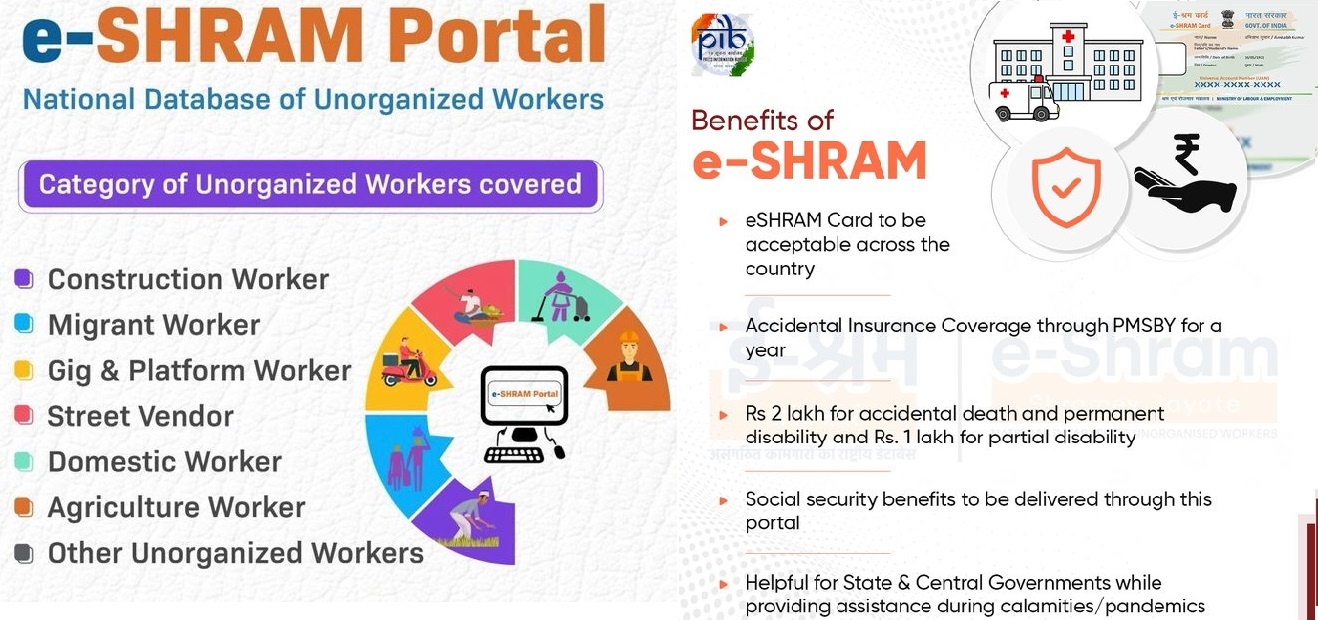Why in news?
The Centre recently launched the e-Shram portal to create a national Aadhaar-seeded database of unorganised workers.
What is the e-Shram portal?
- The portal is expected to create a unified database for unorganised workers to help them access various benefits of central and state government welfare schemes.
- Unorganised workers form over 80% of the workforce - self-employed, migrant and MSME workers.
- The aim is to register 38 crore unorganised workers.

- It will cover construction labourers, migrant workforce, street vendors and domestic workers, among others.
- Workers can register on the portal with the help of Aadhaar and bank account details.
- They will be issued an e-Shram card containing a 12-digit unique number.
- Registered workers will be eligible for Rs 2 Lakh on death or permanent disability and Rs 1 lakh on partial disability.
- The registration on the portal will be coordinated by the Labour Ministry, state governments, trade unions and Common Service Centres.
How does it help?
- Under the Unorganised Workers’ Social Security Act, 2008, a similar attempt was made. But it resulted in the registration of just 120 million workers.
- But the digitisation under this portal will now help in targeting income transfers better and in including the workers in other social security schemes.
- E.g., pension, provident fund, deposit linked insurance, maternity and accident benefits as spelt out in the Social Security Code, 2020.
- However, the Code does not spell out how this will be financed.
How significant is registering unorganised workers?
- At present, unorganised workers are registered under different welfare boards, or not at all.
- In the absence of any central register, migrant workers often do not receive the benefits.
- Of the 50 million workforce of construction workers, at least 15 million are not registered.
- Of the 35 million or more registered, about 40% are not active.
- Events such as Covid-19 require reaching out to the unprotected workforce.
- Clearly, an electronic registration system that can be accessed anywhere is the need of the hour.
What should be done?
- Decentralised registration process with participation of municipalities, panchayats and civil society groups.
- Flexibility to register in any centre of convenience, rather than a specified office.
- Advertising and educating the masses
- Making it easy for workers registered under other welfare boards to enlist on this portal.
- Permitting other national IDs such as voters’ card for those without Aadhaar.
- Efficient data handling of more than 400 million people.
Source: The Indian Express, Business Line
